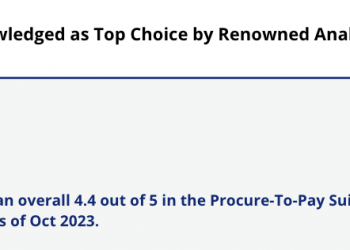Field sobriety tests play a crucial role in Denver DUI cases, serving as a tool to determine whether individuals are impaired while operating a vehicle. Understanding these tests is of utmost importance for anyone facing DUI charges, as they can significantly impact the outcome of an arrest.
Field sobriety tests are designed to evaluate a person’s physical and cognitive abilities, aiming to detect signs of impairment caused by alcohol or drugs. The results of these tests often influence the decision to make an arrest and can be used as evidence in court. Here, you can learn more about field sobriety tests in Denver DUI cases, exploring their significance and providing insights for those in such situations.
What Are Field Sobriety Tests?
Field sobriety tests are standardized assessments used in DUI cases to evaluate an individual’s level of impairment. These tests assess a person’s physical and cognitive abilities, providing law enforcement officers with crucial information to determine if someone is driving under the influence.
In Denver, three standardized field sobriety tests are commonly employed:
- Horizontal Gaze Nystagmus (HGN) Test
- Walt-and-Turn Test
- One-Leg Stand Test
These standardized field sobriety tests provide officers with objective criteria for evaluating a person’s impairment level. By observing physical and cognitive performance, law enforcement aims to gather evidence that can contribute to a DUI arrest. Understanding these tests is essential for individuals facing DUI charges, as it allows them to grasp the significance of the assessments conducted and enables them to seek appropriate legal representation.
The Three Standardized Field Sobriety Tests
Field sobriety tests are essential tools used in DUI cases to evaluate an individual’s level of impairment and aid in determining whether they are driving under the influence. Among the various field sobriety tests, three standardized tests are commonly employed in Denver: the Horizontal Gaze Nystagmus (HGN) Test, the Walk-and-Turn Test, and the One-Leg Stand Test.
Each test targets different aspects of physical and cognitive abilities, aiming to provide law enforcement officers with objective criteria to assess impairment levels accurately.
Horizontal Gaze Nystagmus (HGN) Test
The HGN test is conducted to detect the presence of nystagmus, an involuntary jerking of the eyes, which can be an indication of impairment. During this test, an officer observes the suspect’s eyes while tracking a stimulus, typically a pen or a small flashlight, moving horizontally. The HGN test aims to assess the smoothness of eye movement and the presence of distinct jerking, which becomes more pronounced under the influence of alcohol or certain drugs.
Alcohol consumption affects the brain’s ability to control eye movements, resulting in nystagmus. The HGN test leverages this connection to identify potential impairment. However, it’s important to note that factors such as pre-existing medical conditions or eye disorders can also contribute to nystagmus, presenting challenges and limitations in accurately assessing impairment solely based on the HGN test results.
Walk-and-Turn Test
The walk-and-turn test assesses an individual’s ability to divide attention between physical coordination and following instructions. The test involves the suspect taking nine heel-to-toe steps along a straight line, then executing a turn and returning in the opposite direction. The officer provides clear instructions on how to perform the test.
Officers look for specific indicators during the walk-and-turn test, including an inability to maintain balance while listening to instructions, improper execution of the heel-to-toe steps, stepping off the line, using arms for balance, or making an incorrect turn. These indicators suggest impairment, reflecting a diminished ability to perform multiple tasks simultaneously.
Factors such as age, physical condition, footwear, and environmental conditions can affect a person’s performance on the walk-and-turn test. Uneven surfaces, poor lighting, or footwear unsuitable for walking may hinder an individual’s ability to complete the test accurately, potentially leading to false indications of impairment.
One-Leg Stand Test
The one-leg stand test evaluates an individual’s balance, coordination, and ability to follow instructions. During this test, the suspect is instructed to stand with one foot approximately six inches off the ground while counting out loud. The officer observes signs of swaying, hopping, using arms for balance, or placing the foot down before the instructed time has elapsed.
The one-leg stand test aims to assess physical and cognitive abilities, as it requires maintaining balance while simultaneously focusing on counting. Age, physical condition, inner ear issues, and nervousness can impact an individual’s performance on this test. It’s important to note that some people may have difficulty with balance even when sober, which can influence the test results.
Field Sobriety Test Accuracy and Reliability
Accurate and reliable field sobriety tests are crucial in determining an individual’s impairment level during a DUI stop. However, it is essential to consider the factors that can influence the accuracy of these tests and potentially lead to false positive or false negative results.
Factors Affecting Accuracy
- Subjectivity of Observations: Field sobriety tests require officers to make subjective observations and judgments. The interpretation of test results can vary between officers, potentially impacting the accuracy and consistency of assessments.
- Individual Characteristics: Each person has unique physical and cognitive abilities, which can affect their performance on field sobriety tests. Age, weight, physical condition, or pre-existing medical conditions can influence test results, potentially leading to inaccurate impairment assessments.
False Positive and False Negative Results
- Environmental Factors: Field sobriety tests are often conducted on roadsides or other challenging environments. Uneven surfaces, adverse weather conditions, distracting noises, or inadequate lighting can affect an individual’s performance, potentially leading to false positive results indicating impairment.
- Nervousness and Anxiety: When pulled over for a DUI stop, individuals may experience heightened nervousness or anxiety. These emotional states can impact performance on field sobriety tests, potentially leading to false positive results.
- Research and Validity: Several studies and research papers have questioned the validity and reliability of field sobriety tests. Some research suggests that these tests may not always accurately indicate impairment levels. Factors such as the lack of standardized administration, variations in officer training, and potential biases can introduce inconsistencies and potential inaccuracies in test results.
Moreover, research has indicated that certain medical conditions, such as inner ear disorders, neurological conditions, or eye-related issues, can mimic signs of impairment observed during field sobriety tests, leading to false positive results.
While field sobriety tests remain commonly used in DUI cases, it is important to approach their results with critical analysis and consider potential limitations. Consulting with an experienced DUI attorney who understands the intricacies of these tests and can challenge their validity is crucial for individuals facing DUI charges.
Understanding the limitations, potential factors affecting accuracy, and the evolving research surrounding field sobriety tests can help individuals make informed decisions regarding their defense strategies in DUI cases.
Field Sobriety Test Defense Strategies
A skilled DUI lawyer can employ various defense strategies to challenge the results of field sobriety tests and strengthen a defendant’s case. By critically examining the administration of these tests and considering other factors, they can provide a robust defense against DUI charges.
Challenging the Administration
- Lack of Standardized Administration: Skilled DUI lawyers can challenge the administration of field sobriety tests by questioning whether the tests were conducted according to standardized procedures. Any deviation from established protocols can raise doubts about the accuracy and validity of the results.
- Officer Training and Expertise: Lawyers may assess the training and expertise of the arresting officer to determine if they were adequately trained to administer and interpret the tests. Inadequate training or lack of familiarity with proper procedures can weaken the credibility of the results.
- Environmental Factors: Defense lawyers can examine the environmental conditions in which the field sobriety tests were conducted. Factors such as poor lighting, uneven surfaces, or distracting elements can impact a person’s performance and be used to challenge the accuracy of the results.
Importance of Hiring a Knowledgeable Denver DUI Lawyer
- In-Depth Knowledge of Field Sobriety Tests: A knowledgeable Denver DUI lawyer possesses a deep understanding of field sobriety tests, including their limitations, potential inaccuracies, and factors that can affect test results. This expertise allows them to identify weaknesses in the prosecution’s case and build a strong defense strategy.
- Experience in DUI Cases: Skilled DUI lawyers have experience handling various DUI cases, including those involving field sobriety tests. Their familiarity with local laws, court procedures, and strategies specific to Denver enables them to navigate the legal landscape effectively.
- Legal Expertise and Negotiation Skills: A skilled DUI lawyer possesses the legal expertise and skills necessary to present compelling arguments and negotiate with prosecutors. They can challenge the admissibility of field sobriety test results and work toward favorable plea bargains or, if necessary, build a strong defense for trial.
By leveraging their knowledge, experience, and defense strategies, a skilled DUI lawyer can effectively challenge the results of field sobriety tests, casting doubt on their accuracy and bolstering a defendant’s case. Hiring a knowledgeable Denver DUI lawyer is crucial for those facing DUI charges, as they can provide guidance, protection of rights, and a strategic defense tailored to the case’s specific circumstances.
Use the Services of an Experienced Denver Criminal Defense Attorney for Help with Your Claim
In Denver DUI cases, field sobriety tests are significant in determining an individual’s impairment level and arrest outcomes. However, their accuracy and reliability are not infallible. Subjective observations, environmental conditions, and individual characteristics can impact the test results.
Skilled DUI lawyers play a vital role in challenging the validity of these tests through careful examination of administration procedures and employing defense strategies. Hiring a knowledgeable Denver DUI lawyer is crucial for individuals facing DUI charges, as they possess in-depth knowledge, experience, and negotiation skills to build a strong defense. Individuals can pursue a fair and just resolution to their DUI case by questioning field sobriety test results.









